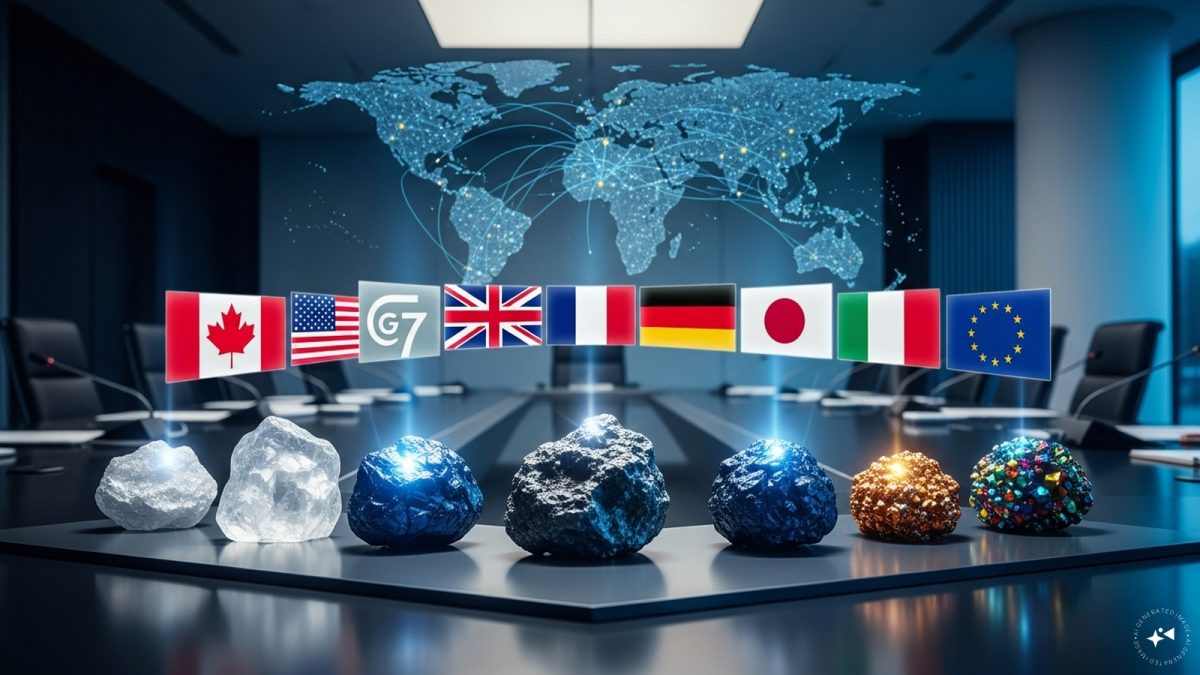Canada has announced 25 critical minerals investments and partnerships worth C$6.4 billion (US$4.6 billion), positioning itself as a key supplier in the West’s bid to reduce dependence on China for rare earths and other essential materials.
The announcement came on Friday after two days of G7 talks in Toronto, where leaders and ministers sought to coordinate strategies to build more resilient global supply chains. The deals include both direct investments and offtake agreements that underpin projects critical to defence, clean energy and advanced manufacturing.
Energy Minister Tim Hodgson said Ottawa would invoke the Defence Production Act to establish a domestic stockpile of critical minerals, mirroring US measures under its national security laws.
“This enables Canada to launch our own defence stockpiling regime and to support multilateral stockpiling efforts,” Hodgson said, highlighting the country’s intention to align more closely with allies in securing vital industrial inputs.
G7’s ‘buyers club’ to counter China’s grip
The G7’s new critical minerals production alliance informally dubbed a “buyers club” aims to reduce the bloc’s vulnerability to Beijing’s export controls. The initiative comes as countries like Australia and Japan strike bilateral rare earth deals with the United States, while Europe and North America seek coordinated stockpiling and sourcing policies.
The group’s plan also reflects growing unease over China’s stranglehold on rare earth elements, which are vital for everything from smartphones and electric vehicles to fighter jets.
The urgency of the initiative intensified after Beijing’s temporary restrictions on rare earth exports earlier this year triggered supply chain disruptions and heightened geopolitical tensions.
Earlier this week, US President Donald Trump and China’s Xi Jinping reached a one-year truce over the dispute, but the short-term deal has done little to reassure Western economies concerned about China’s dominance in the sector.
Impact Shorts
More ShortsInvestments to spur domestic and allied production
Among the 25 new projects announced, several stand out as strategic cornerstones of Canada’s critical minerals strategy. Norway’s Vianode will construct a multibillion-dollar synthetic graphite plant in Ontario, designed to supply anode materials for electric vehicle batteries. Rio Tinto’s scandium plant in Sorel-Tracy, Quebec, also secured multilateral financial support.
The government will guarantee to purchase output from these producers at pre-determined prices, ensuring predictable returns and incentivising upstream investment.
Meanwhile, Nouveau Monde Graphite has secured offtake agreements with Japan’s Panasonic and Luxembourg-based Traxys, along with investment commitments from both the Canadian and Japanese governments.
Ottawa is also encouraging new exploration and mining activity in Canada’s vast mineral-rich regions. Earlier this month, Teck Resources confirmed discussions with U.S. and Canadian officials about supplying minerals used in defence systems.
Hodgson told delegates at the G7 conference that the government was collaborating with Teck to expand capacity at its Trail smelter in British Columbia to produce “niche minerals like germanium, gallium and antimony,” adding that mechanisms such as stockpiling and floor pricing would be key to reaching a final investment decision.
Shared Western strategy for mineral resilience
The European Union, too, has accelerated efforts to develop contingency reserves and diversify sourcing. Dan Jørgensen, the European Commissioner for Energy and Housing, praised the G7’s cooperation, calling it “an important step toward shared strategic autonomy.”
“Responsible and secure supply chains are a shared strategic asset, not a competitive zero-sum game,” Jørgensen said.
Canada’s C$6.4 billion initiative also supports its commitments to NATO defence spending, which Trump has repeatedly criticised as insufficient. The mineral investments aim not only to strengthen the green economy but also to bolster defence production capacity across the alliance.
Beijing’s shadow looms large
Despite these efforts, analysts say China’s entrenched dominance in rare earth refining and processing will not be easily displaced. The country controls more than 80% of the global supply chain and recently imposed sweeping export restrictions on critical elements such as gallium and germanium, materials essential to semiconductors and renewable technologies.
“The G7’s coordinated response is a major step, but catching up to China’s decades-long lead in refining infrastructure will take time and sustained political will,” said a senior official familiar with the talks.
Still, Canada’s latest push underscores the broader geopolitical realignment underway, one where access to critical minerals has become a linchpin of both economic security and national defence.
As the global race for resources intensifies, Ottawa’s new plan signals that the West’s mineral strategy is no longer just about clean energy, it’s about power, resilience, and the future of global industrial leadership.
With inputs from agencies


)

)
)
)
)
)
)
)
)



